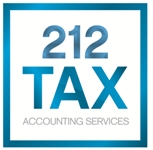Are you thinking about establishing an overseas account to hold your online poker winnings? A federal court recently ruled that online poker offshore accounts are F.B.A.R reportable assets. With this in mind, it is important to make sure you properly report financial accounts used for online gambling.
The Case
In 2006 and 2007, taxpayer John Hom gambled through two online gaming websites, PartyPoker.com and PokerStars.com. Both websites permitted account holders to deposit and withdraw funds. Hom initially used FirePay.com to transfer funds into both gambling websites, which are both considered offshore businesses. Once FirePay.com stopped allowing American customers to transfer funds from FirePay into offshore gambling websites such as PartyPoker, Hom funded his gambling accounts using Western Union and his domestic Wells Fargo bank account, and continued not to report any of the online poker accounts as foreign bank accounts. He also did not report and of his winnings as income on his tax returns.
The IRS noticed, and the dispute went to court. In June 2014, the Federal District Court ruled that the accounts Hom held at FirePay, PokerStars and PartyPoker were all foreign accounts — and thus reportable under FBAR.
FBAR
FBAR rules require taxpayers to identify foreign financial accounts in excess of $10,000 to the IRS by June 30 of every year. Keep in mind that $10,000 is the aggregate total at any point during the year, not the individual total required in each account. Although Hom filed his FBARs for 2006 and 2007 in 2010, he did not include the FirePay account. The result? The IRS assessed penalties for non-willful failure to submit FBARs — penalties that included a $30,000 penalty for 2006 and a $10,000 penalty in 2007. Until the balance is paid in full, the interest and penalties will continue to accrue, according to Forbes.
What to Know About FBAR and the Bank Secrecy Act
In 1970, President Richard Nixon signed the Bank Secrecy Act, which requires reporting of records that have a “high degree of usefulness in criminal, tax, or regulatory investigations or proceedings.” The Act was created to force individuals to report, significant financial assets held outside the United States. It also assists in criminal investigations if the IRS suspects a taxpayer is laundering money, or hiding funds, overseas.
The Act states that all Americans with an overseas bank account or accounts where the total funds exceed $10,000 at any time during the year must report those funds to the IRS by June 30th of the following year, commonly referred to as “FBAR.” Individuals must also report accounts where there is a financial interest or signing authority. According to the federal government and the outcome of the Hom case, the accounts do not have to be brokerage or bank accounts — the federal government determined that these online poker accounts qualified as financial accounts under FBAR.
Can You Fight the IRS Alone?
Despite having the financial resources to hire an accountant or a tax attorney, Hom represented himself in court. The court asked for volunteer counsel to come forward, but no one did. Whether the outcome of Hom’s case would have changed with professional representation is unknown. One thing is certain — if the IRS believes you have broken the law, it will pursue you with vigor.
If you have an interest in a foreign bank account or if you are unfamiliar with the regulations, you may need professional representation. For more information on FBAR and the June 30th reporting deadline, complete our online form or call us to schedule a complimentary consultation with 212 Tax.
Request a Consultation
We are able to work with your unique schedule including after-hour appointments, most weeknights, and weekends.
Call to action
Build Growth Opportunities with Extensive Business Financial Services
We serve clients in a range of industries, including hospitality, nightlife, real estate, legal, and medical.


